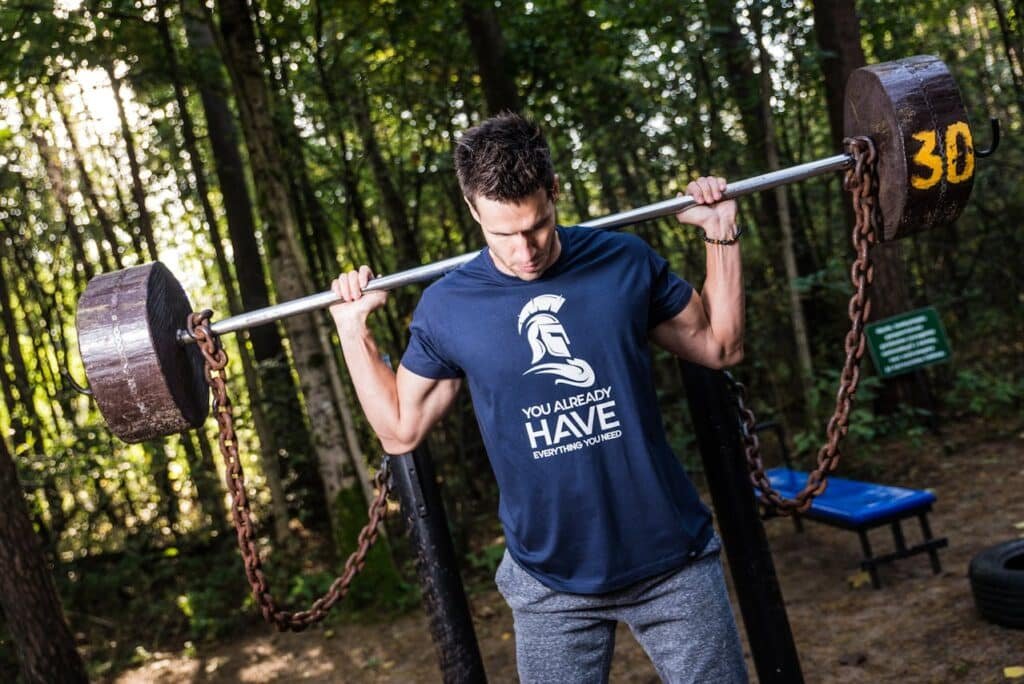Maintaining a balanced physique is a great choice. If you are overweight and want to lose some weight to become fit, then you are making a good choice that can help you both physically and mentally.
However, when deciding to lose weight, you should not choose a rapid weight loss approach. Rapid weight loss is losing body weight at a much faster pace than usual. Losing more than 3 pounds of weight each week is usually considered rapid weight loss. If you lose body weight faster, isn’t that a good thing?
Actually, it is not. There is a difference between losing fat and losing weight. Our goal should be to eliminate excess fat from the body, not the muscle. When you try to lose weight at a faster pace, in most cases, you also lose a lot of muscle with it. I am not going into details as I have an article dedicated to this issue, “Fat loss vs. weight loss.”
The ultimate goal should be to live a healthy life, but the things people do when they try to lose weight at a rapid pace are contradictory to the goal. Usually, when rapid weight loss approaches are taken, there are two things are very common to see:
- Going for crash diets: Crash diets are not seemingly bad for you if you know how to manage them. The problem lies in the people who go for rapid weight loss and do not know how to manage crash diets. Crash diets are not sustainable, so they are done for a very short period, like 3 to 5 weeks. Many professional athletes do mini-cuts for contest preparation or photoshoots. They know what they are doing and balance other activities according to that.
When you restrict too many calories or deprive yourself of food, you will see adverse effects on your health. Your hormones will be unhappy, and it will make you suffer, which you can easily eliminate if you just take a moderate approach to losing weight.
- Excessive Exercise: Another very common thing people do when trying to lose weight faster is increase the volume of exercise, especially cardio exercises. Exercise is a great thing, but doing too much of it can cause backward progression.
Doing way too much cardio results in losing muscle mass, and the chances of getting joint pains also increase. Also, it can be tough to maintain that intensity as a novice, leading to demotivation and, ultimately, a fall from the goal.
Contents
Problems you might face if you go for a rapid weight loss approach
Much research has been done on the idle number for weight loss. It has been found that losing 1 or 2 pounds per week is considered idle. You might face several problems when you go on the path of rapid weight loss. When you start, you might think it will be better for you if you suffer for a couple of months and lose weight very fast. However, if you do so, you might face some serious problems. They are:
Loss of muscle mass
Muscles are essential for our body. They increase our strength, improve bone health, help maintain good posture, prevent injury, and do many other things. One of the best benefits of muscle is that your body needs to burn more calories to maintain muscle. In short, muscle helps in weight loss passively.
When you are overweight, you have a good amount of fat and muscle in your body. When you try to lose weight at a faster pace, you will lose both muscle and fat. However, if you take a more moderate approach to losing weight, you will mostly lose fat with only a fractional amount of muscle.
Loose Skin
One of the worst problems of losing weight very fast is having loose skin. When you are overweight, you will have some loose skin on your body. When you lose weight very fast, the body does not get the chance to adjust to the excess skin, and you end up with hanging skin, which I am sure no one wants.
By taking a steady approach to weight loss, you can avoid the problem to a great extent. In most cases, the skin adjusts on its own after some time, but in some cases, surgery is needed to tighten up the excess skin.
Rebound to ground zero
As mentioned earlier, in rapid weight loss, people decrease their calorie intake and increase the volume of exercise. It does two things. It generates a ton of fatigue and makes the hormones very unhappy. You will see mood swings in that phase.
Most people do not know how to deal with the situation as a novice, and after 1 or 2 months, they cannot continue and quit. The main problems start from there, as in most cases, there is a rebound effect.
As you keep your body deprived of food, you cannot stop your mouth and will start eating much more than previously (before your crash diet). If you consumed 3500 calories before the rapid weight loss program, you will start consuming much more than 3500 calories at that time without even noticing, as your body will be that hungry.
It will cause you to gain more weight even before you start the journey, which will make you feel like you cannot do it, which is not valid. You can do it if you take one step at a time. If you are a beginner, do not make these 5 mistakes. “Top 5 diet mistakes beginners make.”
How can you lose weight gradually?
By gradually losing weight, I mean to aim to lose 1 or 2 pounds of weight per week till you reach your desired weight. Your goals need to be realistic. By doing the following things I tell you will make your weight loss journey easy and sustainable:
Include weight training in your program
You want to preserve as much muscle as possible when you go on a fat-loss journey. The best way to preserve muscle while cutting weight is by doing weight training.
Dr. Mike Israetel beautifully explained this thing. He stated, “When you go on a cut, your body will start searching sources from where it can generate energy. After burning the glycogen storage, your body will look into alternate sources: muscle or fat. When you are doing weight training, your muscles will say, “Hey, I am busy doing stuff,” and your body will turn to fat and ask, “Hey, fat, is there anything you are doing? The answer to the excess fat will be no, and the body will burn it to generate energy.
That is how weight training will steadily preserve muscle and help you to lose weight.

Maintain a healthy diet
Your fat will increase or decrease depending on your calorie intake. Everyone has a maintenance calorie, which is basically the amount of calories that you need to maintain your current weight. Eating more than maintenance calories will increase your weight, and vice versa.
However, do not lower your calorie intake drastically, as it will not be sustainable, and you will face burnout. Slowly lower calories week to week. Make a slight calorie deficit, like 100 to 200 each week, till you reach your desired weight, and then go for maintenance.
When you build muscle, you can eat more calories than before, as maintaining muscle passively burns more calories.

Focus on recovery
Though recovery might not seem as important as the other two, believe me, it is more important than you think.
If you do weight training and maintain a good diet but do not get proper sleep, you will struggle to progress. Sleep is essential for recovery and for the functioning of the hormones.
If your hormones are not happy, they will start to work against you, which can hamper your progress to a large extent. You will feel agitated, dizzy, and even much weaker if you do not prioritize recovery.

